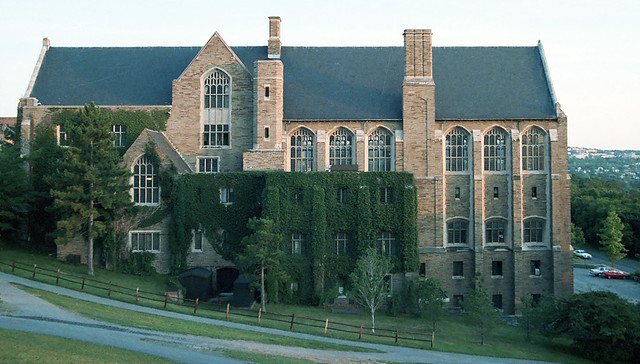Thursday, July 17, 2014
Ghosts
Does anyone know if the Church or the Fathers have some sort of opinion on the existence of ghosts? I cannot claim to have encountered any supernatural specters, but two friends of mine separately claim to have encountered them, so I am asking for ideas. Are they illusions—most often probably. What else? Are they ghosts? Angels mis-interpreted? Demons? The damned? Those in purgation? The student union at my university was supposedly haunted by the wife of the man whose name the building bears and many workers have had frights in that place.
Subscribe to:
Post Comments (Atom)


Well although i don't know anything pronounced on that particular topic, one can certainly infer by knowing some key points of doctrine.
ReplyDeleteSouls of the dead immediately depart this world and go where they should. They don't roam this world. They're not trapped. They aren't in need of "finishing jobs" on this world.
If souls of the dead do appear it's only briefly and by mandate of God. However demons can mimic human appearances in order to deceive.
Fr. Brideshead, FSSP: "Well as we know from the great [obscure] theologian Dom a Lapruanger, the appearance of any ethereal beings must be assumed to be a work of devils...[pause for effect] the work of devils. The magisterium teaches clearly on this point..."
ReplyDeleteOk, I'm done. That's too annoying.
I make assumptions in this order:
1. It's nothing.
2. It's a hallucination
3. It's a demonic power, GET THE F&#% OUT!
A perfect example. Contrary to the laughably inaccurate The Song of Bernadette, the real Bernadette returned to the grotto a second time prepared with a pint of Holy Water "procured" for her by an altar boy friend. When the apparition reappeared she doused it with ALL the water to no effect.
Let's see what any of the internet Catholics on EWTN have to say...
"You will not find anything about Ghosts in the Catechism of the Catholic Church. We can, however, deduce the following from what the church does teach. It does teach angelic spirits (either good or evil)can and have appeared to men. Also human souls (either good or evil) have appeared to men. All of these appearances are made with the permission of God. Spirits, either angelic or human, cannot just make their appearance whenever they wish, a truth I found very appealing, especially when I though about the matter as a kid."
Not a bad answer.
He's not a Church Father, but St. Thomas argued for the possibility of dead souls roaming the earth, referencing Jerome and Gregory the Great as being in agreement: http://www.newadvent.org/summa/5069.htm#article3.
ReplyDelete"Hence we may infer that not only the good sometimes leave their abode, but also the wicked, since their damnation does not exceed that of the demons who wander about everywhere... and that for man's instruction and intimidation they be permitted to appear to the living; or again in order to seek our suffrages, as to those who are detained in purgatory, as evidenced by many instances related in the fourth book of the Dialogues."
There are some things in the Church's liturgy and history that at least allow for the possibility that there could be ghosts:
ReplyDelete1) That souls appear immediately after death before the judgment is a relatively recent belief; that some, because of their sins, might be detained by the evil spirits or even tormented in other ways seems to be implied in the Offertory of the Requiem: "Libera eas ex ore leonis et de lacu profundo .... Ne absorbeat eas tartarus." Likewise the familiar versicle: "A porta inferi: erue, Domine, animas eorum.
2) There are some ancient icons, if I'm not mistaken, that illustrate this same understanding: souls are shown climbing a kind of ladder to the judgment seat of Christ; while some ascend easily, others are detained or even thrown down by the evil spirits.
3) There are many stories (as collected, for instance, by Fr. F. X. Schouppe, S. J.) of souls in Purgatory visiting the living, sometimes in a pretty unnerving way. The artifacts of these visitations (or reproductions of them) are still on display in Rome in the so-called Purgatory Museum located in the church of the Sacred Hearts.
4) Finally, just for the sake of entertainment: one of the theories behind Hamlet's hesitation throughout the play is that he cannot decide if his father's shade is from Purgatory (and hence to be obeyed) or from hell (and hence, of course, to be resisted).